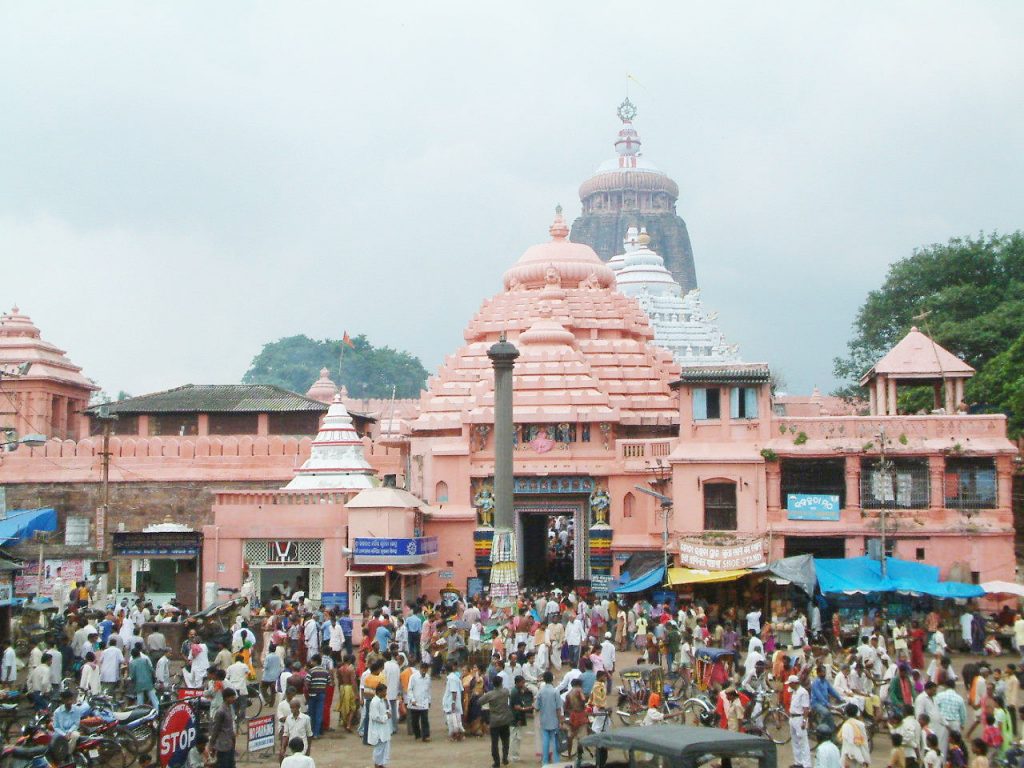Puri: The SJTA would not make the probe report on Ghata Paribartan fiasco public. It would also not disclose any thing on the probe report under RTI Act. A decision to this effect was taken at a meeting of Shree Jagannath Temple Managing Committee here Thursday.
“The Ghata Paribartan ritual is the most secret ritual at Srimandir. This is a sensitive issue. That is why, the panel has decided not to make the probe report public,” said SJTA chef administrator PK Mohapatra. There was inordinate delay in the performance of Ghata Paribartan ritual of Srimandir presiding deities during the Nabakalebara festival in 2015.
The then SJTA chief administrator Suresh Mahapatra had conducted a probe and submitted the report to the managing committee August 5, 2017. Subsequently, the shrine managing panel had constituted a three-member sub-committee to study the report.
“The sub-committee submitted its findings on the probe report Thursday” said a source in the SJTA. It is learnt that around 15 servitors have been blamed for delay in performance of Ghata Paribartan ritual.
As per the decision, the SJTA would initiate action against the errant servitors within three months.
“We will initially serve show-cause notices on the errant servitors,” Mahapatra said. Notably, the temple administration had suspended two servitors in connection with the ritual delay.
Queue system from October 1
Puri: The Shree Jagannath Temple Managing Committee Thursday decided to introduce the queue system for the darshan of Srimandir deities on an experimental basis from October 1.
As part of temple reforms, the Supreme Court had recommended for implementation of the queue system at Srimandir to ensure seamless entry of devotees.
If the queue system is introduced, devotees can enter the temple only through the Lion’s Gate. Then they would reach Natmandap via Baisipahacha, Bhitar Gumuta and Satapahacha.
A temporary barricade would be put up between Natamandap and Jagamohan, but it would be removed during rituals.
Similarly, three and five queues would be arranged for darshan from Bhitarkatha and Baharkatha respectively, while devotees coming for Bhitarakatha, would enter via Jay Bijay Dwara and exit via Beherana Dwara.
Devotees will enter the temple via Ghanti Dwara and exit via Garada Dwara for Baharkatha darshan. The devotees will have darshan of The Trinity and roam around the temple premises before departing via the three remaining gates of the temple.
The managing committee held a closed door meeting, chaired by Gajapati Dibyasingha Deb here Thursday. The meeting continued for four hours and discussed important issues. Later, the Chief Administrator of Shree Jagannath Temple Administration (SJTA), Pradipta Kumar Mohapatra, informed the media regarding the decisions. The Supreme Court appointed amicus curiae wrote letters to the Chief Administrator of SJTA regarding reforms at the temple. The amicus curiae sought to know about the services and culture at the temple. According to the letter, hereditary services might be allowed on conditional basis.
The servitors of all Nijogs will have to submit undertakings regarding the timely conduct of rituals, not to ask for donations from devotees, and they should not enter the temple premises chewing paan and tobacco.
Similarly, the amicus curiae asked the SJTA for quick implementation of the 10 suggestions excluding hereditary services and amendment of the Temple Act.
The SJTA will submit an affidavit in the Supreme Court October 2, Mohapatra said.
The managing committee also discussed the report filed by the sub-committee, which was formed for Annadan Atika. Regarding this, guidelines would be prepared. Bhog offices will be computerised and would be managed by Srimandir. The temple will reduce its employees by a minimum of 100. Some contract workers will be appointed if needed.
Similarly the number of departments would be minimised to 10 to improve administration.
The e-office system has been started at SJTA office, and work on an online accounts system has started. The income and expenditure of the temple would be hosted on the Internet after 2019, and anyone can access it.
Biometric systems would be installed at the temple to register the attendance of workers. The guidelines prepared by the sub-committee regarding identity cards for servitors were also okayed. The servitors will be given identity cards soon.
The meeting also held a discussion on the rate chart of Mahaprasad. The Badu Suar servitors will prepare Mahaprasad. The rate chart would be prepared according to the price of grocery items, cooking costs and profits.
